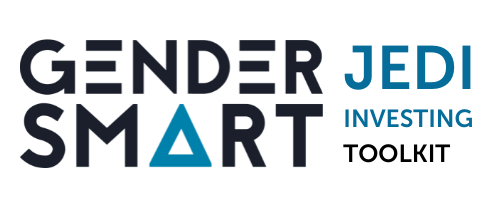Inequality Trends and Diagnostics in Kenya 2020
This report is a joint publication produced by the Kenya National Bureau of Statistics (KNBS) in partnership with the Eastern Africa research node of the African Centre of Excellence for Inequality Research (ACEIR) based at the School of Economics, University of Nairobi, with support from Agence Française de Developpement (AFD) and the European Union (EU). The report presents a comprehensive analysis of multidimensional inequality in Kenya over the period 1994 to 2016 using nationally representative survey data collected and released by the KNBS. The household datasets used in the analysis were derived from the 1994 Welfare Monitoring Survey (WMS II), the Kenya Integrated Household Budget Surveys for 2005/06 and 2015/16, the Labour Force Survey for 1998/99 and the 2009 Kenya Population and Housing Census. In addition, the report uses secondary data from local and international reports to enrich the information derived from sample surveys.
Bridging the Gap between Local and Expat Founder Funding
Over the years, the inflow of startup funding capital in Africa has been rapidly growing, as investors have started paying more attention to investment opportunities in Africa. Getting down to who received the cash gives deeper insights as to the development of different ecosystems. This article from VC4A puts forth the belief that the question of who received the money is a relevant one and one that should be consistently tracked; or, to put it differently, it is not enough that the cash raised keeps increasing, but it should also reach local founders.
Racial Equity: The Economic and Business Case for Change
This page from Mission Investors Exchange compiles evidence, in reports going back to 2013, illuminating how and why racial equity is good for business — and how inequity causes economic harm — with increasing implications as America's heads towards a population in which more than half of U.S. workers and consumers will be people of color by 2050. Impact investors can use these data to make the case for why pursuing racial equity in impact investing may indeed be a fiduciary responsibility and lead to long-term gains.
Ten Things to Know about Gender Equality
How can we ensure that the role of women in the workplace and in society is central to efforts to rebuild economies in the COVID-19 era, and that women do not fall further behind? As world leaders at the UN General Assembly assess progress, look ahead to recovery, and commemorate the 25th anniversary of the Fourth World Conference on Women and the Beijing declaration, McKinsey offered their perspectives on the ten things everyone should know about gender equality.
Diverse Asset Managers: Opportunities for inclusion
The Knight Foundation reviews the data on firms owned by women and minorities in the asset management industry.
Investing in the Future: The Case for Increasing Diversity in Finance
As companies are setting their action plans to respond to social injustice around the world, Accenture's Managing Director - CEO and Enterprise Strategy adds to the discussion by sharing some thoughts on how the finance function has a particularly strong mandate to be more inclusive: not only is it the right thing to do–it’s vital to future success.
Diversity As $uperpower: The (Well-Known) Data Against Homogeneous Teams In Venture Capital
The data are clear: As with public companies, startup founder and investing teams that are diverse—specifically with more than one gender and/or one race or ethnicity represented—are more innovative and make more money. In fact, venture capital investing teams limited to any one gender and/or any one race damage innovation and risk limiting financial outcomes. This article summarises the steady stream of evidence published since 2013 indicates that when startup teams and venture investing teams embrace differences in gender, race, ethnicity, educational background, and/or professional experience, these heterogeneous teams outperform homogeneous teams.
The Economic Benefits of Improving Social Inclusion
The Special Broadcasting Service (SBS) commissioned Deloitte Access Economics to quantify the economic dividend from raising the level of social inclusion in Australia, with a focus on cultural diversity, in order to help shape its future policies and strategies for delivering on its Charter. The quantitative analysis in this report largely focuses on the benefits of social inclusion for culturally and linguistically diverse communities, specifically migrant communities, but this report recognises that there are many other groups that contribute to diversity and for whom improving social inclusion is likely to result in additional economic benefits.
The Investment Case for Board Diversity: A Review of the Academic and Practitioner Research on the Value of Gender and Racial/Ethnic Board Diversity for Investors
This paper from the Office of the Illinios State Treasurer seeks to examine the wealth of literature on the subject of whether and to what extent gender and racial/ethnic diversity affect the functioning of corporate boards and the performance of the companies they oversee, to provide further insight and render a judgment on the investment case for gender and racial/ethnic diversity on corporate boards. In summary, this paper concludes that the gender and racial/ethnic composition of corporate boards does indeed have a material and relevant impact on company performance and investors.
Racial Equity: Foundational Concepts
If you're early in your journey of exploring the links between racial equity and impact investing, a useful place to start is by understanding core concepts behind racial equity and how it differs from concepts such as diversity and inclusion. To help you get started, Mission Investors Exchange has compiled a brief list of frequently used terms, synthesized from the resources of leading educators.
Racial Equity Tools Glossary
Words and their multiple uses reflect the tremendous diversity that characterizes our society. Indeed, universally agreed upon language on issues relating to racism is nonexistent. Even the most frequently used words in any discussion on race can easily cause confusion, which leads to controversy and hostility. It is essential to achieve some degree of shared understanding, particularly when using the most common terms. In this way, the quality of dialogue and discourse on race can be enhanced.
"France and Germany urged to rethink reluctance to gather ethnicity data"
Article from The Guardian reporting on how the racial discrimination debate had lead some leaders to push for updated surveys in France and Germany to help tackle injustices.
Canadian Task Force on Women in the Economy
The COVID-19 pandemic has had an unequal impact on Canadians, particularly women, and the Government of Canada recognizes that a robust and inclusive recovery is necessarily a feminist recovery as well. The Government of Canada has created a Task Force on Women in the Economy to advance gender equity and address systemic barriers and inequities faced by women. The Task Force will harness the best ideas from a diverse group of experts to advise the government on a feminist, intersectional action plan that addresses issues of gender equality in the wake of the pandemic. Their expertise from the worlds of business, health, not-for-profit, child care, labour, academia, and advocacy will inform the government's plan to create jobs and growth. The Task Force will advise the Deputy Prime Minister and Minister of Finance and the Associate Minister of Finance on policies and measures to support women's employment.
Responsible Venture Capital: Integrating Environmental and Social Approaches in Early-Stage Investing
As pragmatic investors in challenging markets, CDC and FMO tailor their approach to the nuances of each asset class. Equally, as development finance institutions, they have a deep commitment to responsible investment. Therefore, this report is intended to provide practical advice about how to invest responsibly in early-stage businesses in emerging markets; managing environmental, social and governance (ESG) risks and identifying opportunities, while supporting the growth of innovative companies.
Verve Super's Gender Lens Investing Approach
Verve Super's Gender Lens Investing approach takes into consideration gender-based factors across the investment process to advance gender equality & inclusion and better inform investment decisions
Inclusive Africa
Inclusive Africa is a leading player for systemic change to improve inclusivity and drive diversity in Africa. They help development agencies, impact investors, and organizations working in Africa to track and improve inclusivity with a particular focus on intercultural and ethnic diversity to create opportunities for all.
Global Diversity and Inclusion: Perceptions, Practices and Attitudes
In 2008, the Society for Human Resource Management (SHRM) commissioned the Economist Intelligence Unit (EIU), a subsidiary of The Economist Group, to conduct an International Study on Diversity and Inclusion. The study was launched to provide a deeper understanding of Diversity and Inclusion issues on a global scale, and to offer insight into Diversity and Inclusion best practices worldwide. This groundbreaking study included surveying over 500 executives and interviewing 40 of them. In addition, the Economist Intelligence Unit researched the diversity readiness of 47 different countries to create the Global Diversity Readiness Index. This report details the findings of both the research and this groundbreaking new tool.
Impact Investing in the Indigenous Context: A Scan of the Canadian Marketplace
Indigenous issues remain at the forefront of Canadian policy, with many communities still lacking the necessary infrastructure and services related to water, education, economic development, and health. While these issues have traditionally been targeted by government, non-profits and charities, we believe that impact investors can play a role as well. This report seeks to answer a crucial question that has been under-examined in the Canadian impact investment market: What is being done by impact investors, and how can the sector contribute to the betterment of Indigenous communities in Canada? How will the emergence of new intermediaries shape the Indigenous Finance landscape over the next decade?
Inclusive Resilience in South Asia
The World Bank’s South Asia team has developed project specific social inclusion action plans that include a set of recommendations outlining feasible entry points for Disaster Risk Management (DRM) projects across a variety of DRM topics to more inclusively address the needs of excluded populations. The menu of actions will keep growing as we learn more. This project aims to elevate innovative solutions and the emerging best practices from the local, regional and international levels on inclusion in disaster contexts. This platform aims to highlight the truly resilient society that DRM and Social Development practitioners are building and scaling across the South Asia region.

